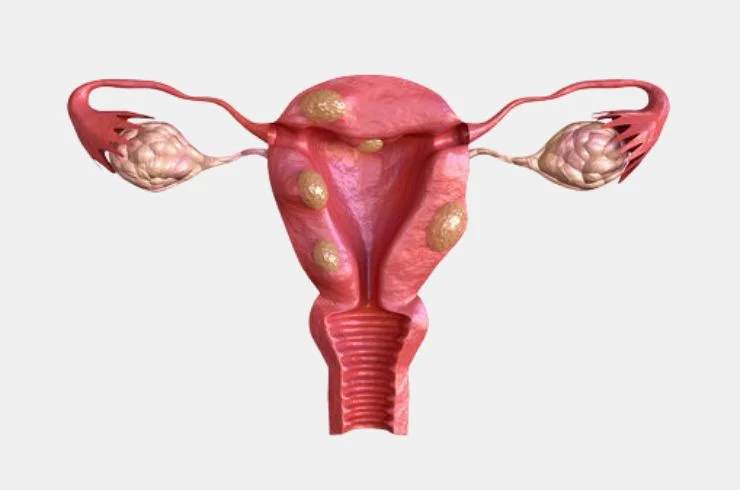Uterine Fibroids

Uterine fibroids, also known as leiomyomas or myomas, are noncancerous growths that develop in the muscular wall of the uterus. These tumors are composed of smooth muscle cells and fibrous connective tissue, and they can vary in size, ranging from tiny seedlings to large masses. Fibroids are common, affecting up to 80% of women by the age of 50.
While many women with fibroids experience no symptoms, some may encounter issues such as heavy menstrual bleeding, pelvic pain, pressure symptoms, and complications during pregnancy and labor. The exact cause of fibroids remains unclear, but they are believed to be influenced by hormonal factors, particularly estrogen and progesterone, as they tend to shrink after menopause when hormone levels decrease.
Diagnosis typically involves pelvic exams, ultrasound, or MRI. Treatment options depend on the size and location of the fibroids and the severity of symptoms. They range from watchful waiting and medication to surgical interventions, such as myomectomy (removal of fibroids) or hysterectomy (removal of the uterus). Lifestyle changes, such as diet and exercise, may also help manage symptoms. Regular medical check-ups are essential for monitoring fibroid growth and symptoms.